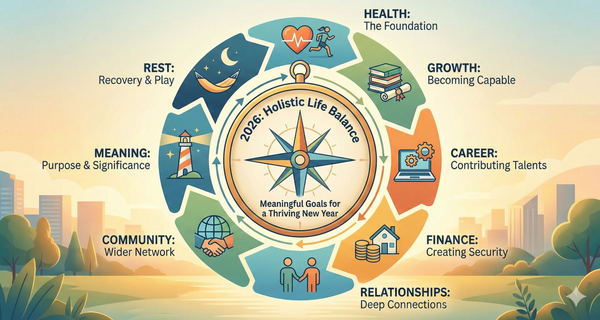Financial Mistakes to Avoid in Your 30s
Financial Mistakes to Avoid in Your 30s
Your 30s are a pivotal decade for personal finance. The financial decisions you make now can have a lasting impact on your future. By avoiding common money mistakes, you can build a strong financial foundation for the years to come. This article explores the most critical financial mistakes to avoid in your 30s, offering personal finance tips to help you make smart decisions.
Ignoring Your Retirement Savings
One of the biggest financial mistakes you can make in your 30s is neglecting your retirement savings. The power of compound interest means that the money you invest now will have decades to grow, so it'''s crucial to start as early as possible.
The High Cost of Procrastination
Delaying retirement savings can cost you hundreds of thousands of dollars in the long run. Every year you wait, you miss out on potential growth. For example, a 30-year-old who starts saving for retirement today will have a significant advantage over someone who waits until their 40s.
Maximizing Your 401(k) and IRA Contributions
If your employer offers a 401(k) plan with a matching contribution, make sure you contribute enough to get the full match. It'''s essentially free money. Additionally, consider opening an Individual Retirement Account (IRA) to supplement your savings.
Accumulating High-Interest Debt
High-interest debt, such as credit card balances and personal loans, can be a major obstacle to achieving your financial goals. In your 30s, it’s essential to manage and reduce this type of debt.
The Trap of Credit Cards and Personal Loans
Credit cards can be convenient, but they can also lead to a cycle of debt if not managed carefully. High interest rates can cause your balances to balloon, making it difficult to pay them off. Personal loans can also be a burden if the interest rates are high.
Strategies for Debt Repayment
There are several strategies for paying off debt, such as the debt snowball (paying off the smallest debts first) or the debt avalanche (tackling the debts with the highest interest rates first). Choose a method that works for you and stick with it.
Succumbing to Lifestyle Inflation
As your income grows in your 30s, it can be tempting to upgrade your lifestyle. However, letting your spending increase at the same rate as your income can prevent you from reaching your financial goals.
Keeping Your Spending in Check as Your Income Grows
Instead of immediately spending more as you earn more, focus on saving and investing the difference. This will help you build wealth and achieve financial independence sooner.
Prioritizing Financial Goals Over Wants
Create a budget that aligns with your financial goals. This will help you distinguish between your needs and wants, allowing you to prioritize long-term financial security over short-term gratification.
Neglecting an Emergency Fund
An emergency fund is a crucial component of a solid financial plan. Without a financial safety net, unexpected expenses can derail your progress and force you into debt.
Why You Need a Financial Safety Net
Life is unpredictable. An emergency fund can cover unexpected costs like medical bills, car repairs, or job loss, providing you with peace of mind and financial stability.
How Much to Save for Emergencies
Financial experts recommend saving at least three to six months''' worth of living expenses in an easily accessible savings account. This will ensure you have a cushion to fall back on in case of an emergency.
Avoiding Necessary Insurance
Insurance is a vital tool for protecting your assets and your future. In your 30s, it'''s important to have the right types of insurance in place.
The Importance of Life and Disability Insurance
If you have dependents who rely on your income, life insurance is a must. Disability insurance is also crucial, as it provides income if you become unable to work due to an illness or injury.
Protecting Your Assets and Your Future
Review your insurance policies regularly to ensure you have adequate coverage. This includes health, auto, and homeowners or renters insurance. Proper insurance will protect you from financial devastation in the event of a catastrophe.
Making Uninformed Investment Decisions
Investing is a powerful way to build wealth, but it'''s important to make informed decisions. Poor investment choices can lead to significant losses.
The Risks of Not Diversifying
Diversification is key to managing investment risk. Don'''t put all your eggs in one basket. Spread your investments across different asset classes, such as stocks, bonds, and real estate, to reduce your risk.
Seeking Professional Financial Advice
If you'''re unsure about how to invest, consider working with a financial advisor. A professional can help you create a personalized investment strategy that aligns with your risk tolerance and financial goals.
Conclusion
Your 30s are a time of significant financial opportunity. By avoiding these common money mistakes, you can set yourself up for a secure and prosperous future. Take control of your personal finance today by creating a budget, saving for retirement, managing your debt, and making smart investment decisions.




